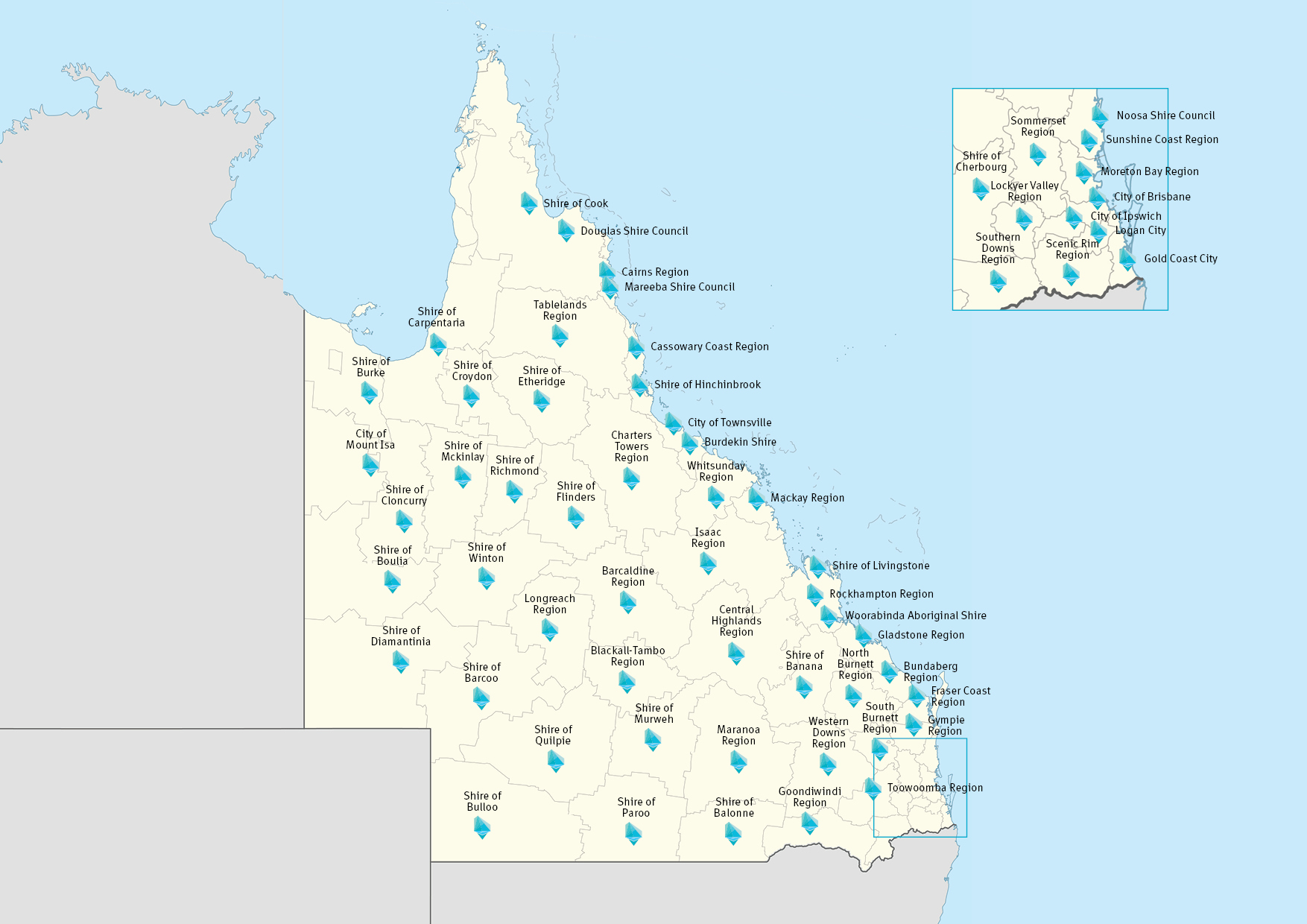06 Dec Professionally managed local government assets increase public value and safety
By employing trained and competent staff, something that the RPEQ systems ensures, local government assets will be professionally managed which in turn increases their value to the community, writes Board Chairperson and regional representative Dawson Wilkie.
Over the past 24 months BPEQ has met with representatives from nearly every Queensland council – from Barcoo to Bundaberg, Balonne to Cook – as part of a coordinated engagement strategy.
Through meetings with councillors and chief executive officers and workshops with engineers, BPEQ has succeeded in raising awareness of the PE Act, resulting in an increase in RPEQs employed in local government.

A search of BPEQ’s register of RPEQs reveals there are 430 employed directly in local government. This figure is boosted by five of the larger councils in South-East Queensland (Brisbane, Gold Coast, Sunshine Coast, Logan and Toowoomba) that account for 290 of the total number of 430. Given the breadth of engineering services undertaken by councils it is my view that this figure should be much higher.
It appears that some councils do not employ RPEQs at all. In 2002, there was a significant change to the PE Act – the inclusion of construction and maintenance into the definition of professional engineering services recognised the importance of these activities. Local government, even small councils, have wide and varied responsibilities from managing road networks, water and wastewater systems to buildings and other structures. It is difficult to perceive that the role of managing and maintaining these assets does not, at times, fall under the definition of professional engineering services.
“The obvious solution to this dilemma for councils is to ensure they employ and engage RPEQs, so breaches of the PE Act do not occur.”
The obvious solution to this dilemma for councils is to ensure they employ and engage RPEQs, so breaches of the PE Act do not occur. The upside however in employing trained and competent staff, something that the RPEQ systems ensures, is that local government assets will be
professionally managed which in turn increases their value to the community.
It is not uncommon to request different qualifications when it comes time to advertise for engineering staff. It is easy to mandate the requirement to be a RPEQ which will ensure that applicants have suitable qualifications and have undertaken continuing professional development.
At its core the PE Act is about upholding standards of engineering and protecting the public. The public has a right to expect that the infrastructure and services they use every day are safe and up to standard. One of the ways of demonstrating this is to only employ qualified and competent RPEQs.
The Queensland councils BPEQ staff have met with or contacted.


 MY ACCOUNT
MY ACCOUNT
